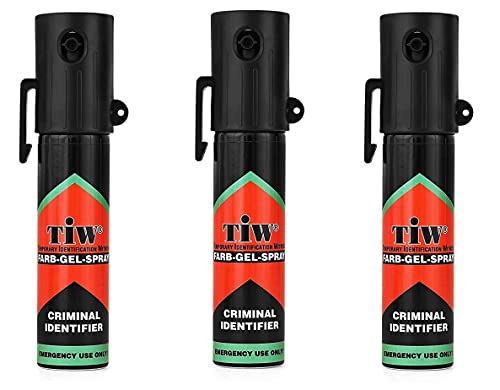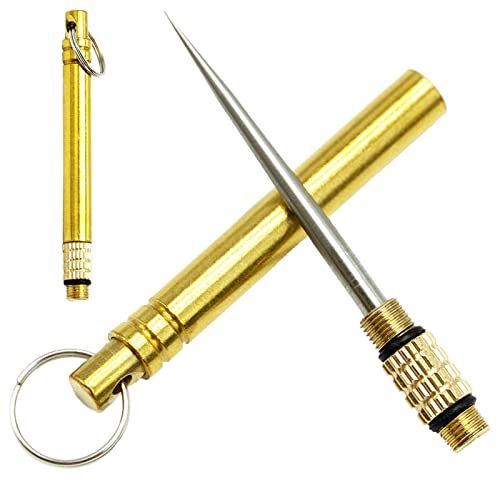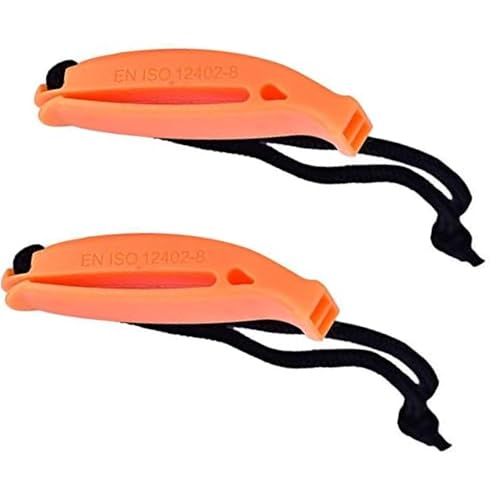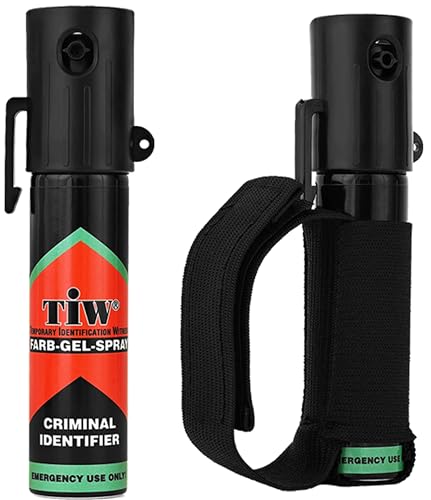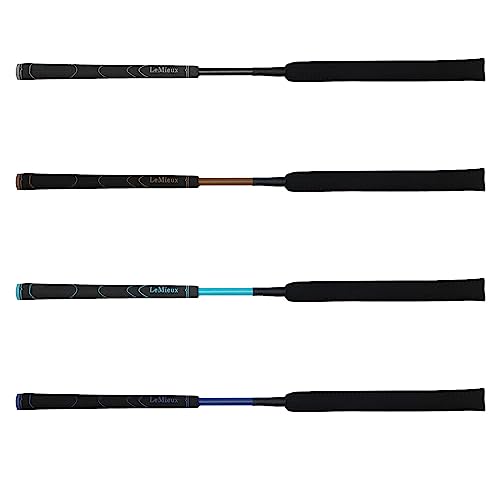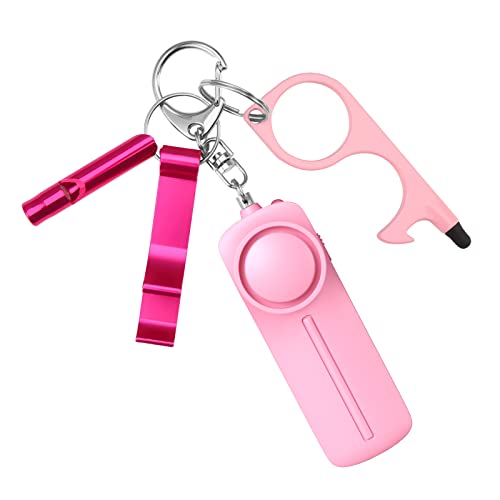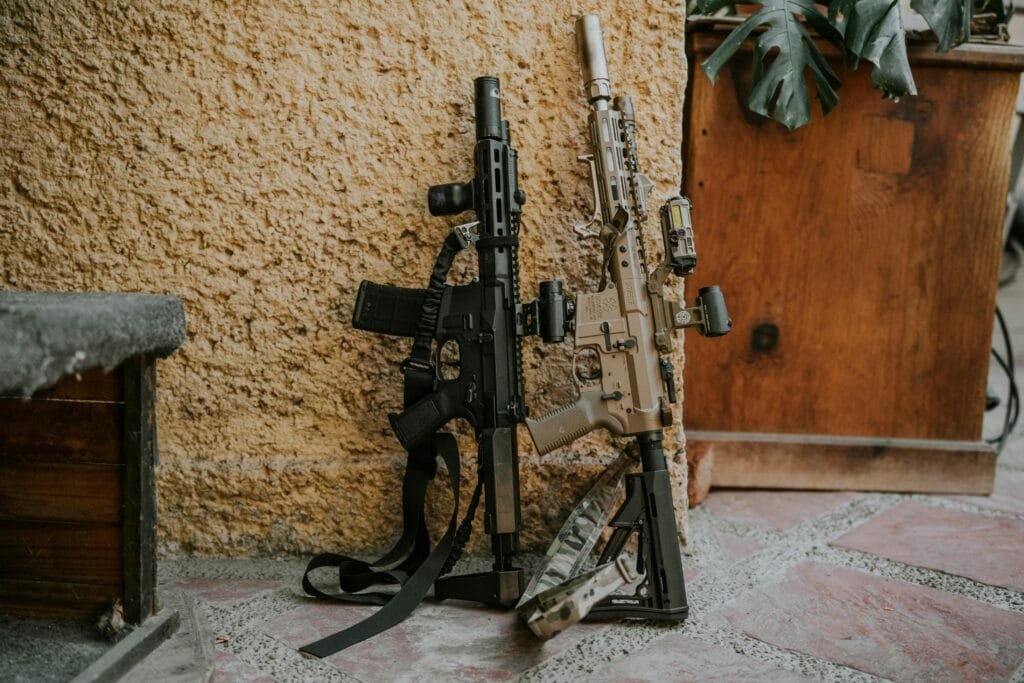
Non Lethal Weapons UK:
In today’s world, personal safety and self-defence have become top priorities for many individuals seeking peace of mind in public spaces. The UK offers a range of non-lethal weapons designed to empower you while ensuring a minimal risk of serious harm.
From pepper sprays to personal alarms, these tools provide effective alternatives for self-protection without crossing legal boundaries. In this ultimate guide, we unveil the top 10 non-lethal weapons available in the UK, detailing their features, uses, and benefits.
Whether you’re a city dweller navigating busy streets or someone who enjoys outdoor adventures, understanding these tools is vital for enhancing your safety.
Join us as we explore each option, arming you with the knowledge to make informed decisions about your self-defence strategy.
Your safety should never be compromised, and with the right non-lethal weapon, you can take control of your personal security confidently.
Get ready to discover the best defensive tools at your disposal!
Understanding Non-Lethal Weapons
Non-lethal weapons are specifically designed to incapacitate, repel, or subdue individuals without causing fatal injuries or significant long-term harm.
These tools offer a critical balance between providing self-defence capabilities and ensuring minimal risk to life. They are particularly useful in situations where escalation to lethal force is neither necessary nor desirable, allowing for the effective management of personal safety threats.
By utilising non-lethal weapons, individuals can protect themselves while adhering to legal and ethical standards.
The concept of non-lethal weapons encompasses a wide range of tools, from chemical sprays and electric shock devices to auditory deterrents and physical barriers.
Each type of weapon serves a unique purpose and is suited to different scenarios. For instance, pepper sprays can temporarily blind an assailant, while personal alarms can draw attention to the situation, potentially deterring further aggression.
Understanding the various types of non-lethal weapons available is crucial for selecting the most appropriate option for your specific needs.
Moreover, the development of non-lethal weapons has advanced significantly over the years, incorporating new technologies and materials to enhance their effectiveness and safety.
Innovations such as stun guns with adjustable voltage and pepper sprays with extended range have improved the utility of these tools.
As a result, individuals seeking to bolster their personal security now have access to a diverse array of reliable and efficient non-lethal weapons.
The Legal Landscape of Non Lethal Weapons UK
Navigating the legal landscape surrounding non-lethal weapons in the UK is essential for ensuring compliance and avoiding potential legal repercussions.
The UK has stringent regulations governing the possession and use of self-defence tools, and it is crucial to be aware of these laws to make informed decisions.
Non-lethal weapons that are legal in other countries may not necessarily be permitted in the UK, making it imperative to understand the specific legal requirements.
In the UK, certain non-lethal weapons, such as pepper sprays and tasers, are classified as prohibited items under the Firearms Act 1968 and the Offensive Weapons Act 2019.
This means that their possession, sale, and use are strictly regulated, and individuals found in violation of these laws may face severe penalties.
However, other non-lethal tools, such as personal alarms, dye sprays, and certain types of baton devices, are legally permissible for self-defence purposes, provided they are used responsibly and within the bounds of the law.
To ensure compliance, it is advisable to research the legal status of any non-lethal weapon before acquiring it.
Consulting official government resources or seeking legal advice can provide clarity on what is legally permissible.
Additionally, understanding the appropriate contexts for using non-lethal weapons and adhering to guidelines regarding their deployment can help mitigate legal risks. By staying informed and vigilant, individuals can enhance their personal security while remaining compliant with UK laws.
Benefits of Using Non-Lethal Weapons for Self-Defence
The primary benefit of using non-lethal weapons for self-defence is the ability to protect oneself without inflicting permanent harm on the assailant.
This aligns with ethical considerations and the principle of proportionality in self-defence, ensuring that force is used appropriately and only to the extent necessary to neutralise the threat.
Non-lethal weapons provide a humane and responsible approach to personal safety, making them an ideal choice for individuals who prioritise ethical self-defence methods.
Another significant advantage of non-lethal weapons is their accessibility and ease of use. Many of these tools are designed to be user-friendly, requiring minimal training to operate effectively.
This makes them suitable for a wide range of individuals, including those who may not have the physical strength or combat training to defend themselves using traditional methods.
Non-lethal weapons empower people of all ages and physical abilities to take control of their personal security with confidence.
Furthermore, non-lethal weapons offer a practical solution for self-defence in various environments.
Whether navigating urban areas, commuting, or engaging in outdoor activities, these tools can be easily carried and deployed when needed.
Their portability and discreet nature allow individuals to maintain a low profile while being prepared to respond to potential threats.
By incorporating non-lethal weapons into their safety strategies, individuals can enhance their situational awareness and readiness, ultimately contributing to a safer and more secure environment.
Top 10 Non Lethal Weapons UK
- Personal Alarms: Personal alarms are small, portable devices that emit a loud, piercing sound when activated. They are designed to attract attention and deter potential attackers by creating a noisy disturbance. These alarms can be easily carried in a pocket, handbag, or attached to a keychain, making them a convenient and discreet option for enhancing personal safety.
- Dye Sprays: Dye sprays, also known as UV marker sprays, are designed to mark an attacker with a visible or UV-reactive dye. This can help law enforcement identify the assailant and serve as a deterrent against further aggression. Dye sprays are legal in the UK and can be an effective tool for self-defence without causing physical harm.
- Strobe Flashlights: Strobe flashlights are tactical lights that emit a bright, disorienting strobe effect. When directed at an assailant’s eyes, the strobe light can temporarily impair vision and coordination, providing an opportunity to escape or seek help. These flashlights are compact and can be carried easily, making them a practical addition to a self-defence toolkit.
- Kubotans: Kubotans are small, baton-like devices that can be used for striking and pressure point techniques. They are typically made of metal or hard plastic and can be attached to a keychain for easy access. Kubotans are legal in the UK and can provide an effective means of self-defence through the application of focused force.
- Personal Safety Whistles: Personal safety whistles are simple yet effective tools for attracting attention in emergencies. By emitting a loud, high-pitched sound, these whistles can alert nearby individuals to a potential threat and deter an attacker. They are lightweight, inexpensive, and can be carried discreetly on a keychain or lanyard.
- Pepper Gel: While traditional pepper spray is illegal in the UK, pepper gel is a legal alternative that can be used for self-defence. Pepper gel is a thick, sticky substance that can be sprayed at an assailant, causing irritation and temporary blindness. The gel formulation reduces the risk of blowback and provides greater accuracy, making it a reliable option for personal protection.
- Expandable Batons: Expandable batons are telescopic devices that can be extended to provide a means of self-defence. These batons are typically made of metal and can be used for striking or blocking attacks. While their use is subject to legal restrictions, they can be a valuable tool for individuals trained in their proper deployment.
- Personal Security Apps: In the digital age, personal security apps have become an innovative tool for self-defence. These apps can provide real-time location tracking, emergency alerts, and direct communication with emergency services. By leveraging technology, personal security apps offer a modern and accessible approach to enhancing personal safety.
- Self-Defence Keychains: Self-defence keychains are multi-functional tools designed to provide a means of protection in an emergency. These keychains may include features such as pointed edges for striking, built-in alarms, or pepper gel dispensers. They are compact and discreet, making them a practical option for everyday carry.
- Stun Guns: Stun guns are electrical devices that deliver a high-voltage shock to an assailant, temporarily incapacitating them. While their possession and use are subject to legal restrictions in the UK, certain models may be available for purchase with appropriate licensing. Stun guns can provide a powerful means of self-defence when used responsibly and in accordance with the law.
How to Choose the Right Non Lethal Weapon UK for Your Needs
Choosing the right non-lethal weapon for your needs involves considering several factors, including your personal preferences, lifestyle, and the specific threats you may encounter.
One of the first steps in selecting an appropriate tool is to assess your environment and the situations in which you are most likely to require self-defence.
For instance, urban dwellers may benefit from portable and discreet options like personal alarms and dye sprays, while those who enjoy outdoor activities might prefer more robust tools like expandable batons or strobe flashlights.
Another important consideration is your level of comfort and familiarity with the chosen weapon. Some non-lethal tools require practice and training to use effectively, such as stun guns or kubotans.
It is crucial to select a weapon that you feel confident using and can deploy quickly in an emergency. If you are new to self-defence tools, starting with simpler options like personal alarms or safety whistles may be a practical approach, allowing you to gradually build your confidence and skills.
Additionally, legal compliance is a key factor in choosing a non-lethal weapon. Ensuring that the tool you select is legal to possess and use in the UK is essential to avoid potential legal issues.
Researching the regulations and seeking legal advice if needed can help you make an informed decision. By carefully considering these factors, you can choose a non-lethal weapon that aligns with your needs and enhances your personal safety.
Safety Tips for Using Non-Lethal Weapons
Using non-lethal weapons effectively and safely requires adhering to certain guidelines and best practices. First and foremost, it is essential to familiarise yourself with the operation and functionality of the chosen tool.
Reading the manufacturer’s instructions and practising with the weapon in a safe environment can help you become proficient in its use. This preparation can make a significant difference in your ability to respond effectively during an actual emergency.
Another important safety tip is to remain aware of your surroundings and practice situational awareness. Being alert and vigilant can help you identify potential threats early and take appropriate action.
When using a non-lethal weapon, it is crucial to use it only as a last resort and in a manner that minimises the risk of escalation. For example, using a personal alarm to attract attention or deploying a dye spray to mark an assailant can be effective without resorting to physical confrontation.
Finally, it is important to understand the limitations of non-lethal weapons and to have a comprehensive self-defence strategy.
Non-lethal tools are designed to provide temporary protection and should be used in conjunction with other safety measures, such as avoiding risky situations, traveling in groups, and knowing escape routes.
By combining the use of non-lethal weapons with a proactive approach to personal safety, you can enhance your overall security and reduce the risk of harm.
Training and Certification for Non-Lethal Weapon Users
While many non-lethal weapons are designed to be user-friendly, obtaining proper training and certification can significantly enhance your ability to use these tools effectively.
Various organisations and training centres offer courses that cover the safe and responsible use of non-lethal weapons, providing valuable skills and knowledge.
These courses often include practical demonstrations, scenario-based training, and legal education to ensure comprehensive preparedness.
Training programs can also help build confidence and proficiency in using non-lethal weapons. Hands-on practice under the guidance of experienced instructors allows individuals to develop muscle memory and refine their techniques.
This can be particularly beneficial for tools that require precision and control, such as kubotans or expandable batons. By investing in training, you can improve your ability to respond effectively in high-stress situations.
Additionally, some non-lethal weapons may require certification to possess or use legally. For instance, certain types of stun guns or expandable batons may be subject to licensing requirements in the UK.
Completing a certified training program can help you meet these legal requirements and ensure that you are fully compliant with the law. By pursuing training and certification, you can enhance your personal safety and demonstrate a commitment to responsible self-defense.
Real-Life Applications and Success Stories
Real-life applications and success stories highlight the effectiveness of non-lethal weapons in enhancing personal safety and preventing harm.
Numerous accounts from individuals who have successfully used non-lethal tools to protect themselves provide valuable insights and inspiration. These stories underscore the importance of being prepared and having the right tools at your disposal when faced with a potential threat.
For example, there have been instances where personal alarms have deterred attackers by drawing attention to the situation.
In one case, a woman walking home at night was approached by an aggressive individual. She activated her personal alarm, which emitted a loud siren, causing the attacker to flee. This simple yet effective tool helped prevent a potentially dangerous encounter and ensured her safety.
Similarly, dye sprays have proven to be valuable in aiding law enforcement and identifying assailants. In another instance, a man used a dye spray to mark a mugger who attempted to steal his belongings.
The visible dye allowed police to quickly locate and apprehend the suspect, preventing further crimes and bringing the perpetrator to justice. These success stories demonstrate the practical benefits of non-lethal weapons and their role in enhancing personal security.
Comparing Non-Lethal Weapons to Traditional Self-Defence Methods
Comparing non-lethal weapons to traditional self-defence methods reveals the unique advantages and limitations of each approach.
Traditional methods, such as martial arts and physical combat techniques, require significant training and physical strength.
While these skills can be highly effective, they may not be accessible to everyone, particularly individuals with limited physical capabilities or those who do not have the time to commit to extensive training.
Non-lethal weapons, on the other hand, offer a more accessible and immediate means of self-defence. Tools like personal alarms, dye sprays, and stun guns can be used by individuals of all ages and physical abilities, providing a practical solution for those seeking to enhance their personal safety.
These weapons require minimal training and can be deployed quickly in emergency situations, making them a convenient option for everyday carry.
However, it is important to recognise that non-lethal weapons also have limitations. They are designed to provide temporary protection and may not be sufficient in all scenarios.
Combining non-lethal tools with traditional self-defence methods can create a comprehensive approach to personal safety. For instance, learning basic self-defence techniques while carrying a personal alarm or dye spray can provide multiple layers of protection.
By integrating both approaches, individuals can maximise their ability to respond effectively to threats and ensure their safety.
Conclusion: Empowering Yourself with Non-Lethal Weapons
Empowering yourself with non-lethal weapons is a proactive step towards enhancing your personal safety and ensuring peace of mind.
By understanding the various non-lethal tools available in the UK and their legal implications, you can make informed decisions about your self-defence strategy.
Each non-lethal weapon offers unique benefits and can be tailored to suit your specific needs and lifestyle.
The ultimate goal of using non-lethal weapons is to provide effective self-defence while minimising the risk of serious harm.
These tools offer a humane and responsible approach to personal protection, allowing individuals to defend themselves without resorting to lethal force.
By incorporating non-lethal weapons into your safety plan, you can take control of your personal security and confidently navigate your daily life.
In conclusion, the top 10 non-lethal weapons in the UK provide a diverse array of options for enhancing personal safety.
From personal alarms and dye sprays to stun guns and self-defence keychains, these tools empower individuals to protect themselves and prevent harm.
By staying informed, practising safe usage, and considering training and certification, you can maximise the effectiveness of these non-lethal weapons and ensure your safety in any situation. Your safety should never be compromised, and with the right non-lethal weapon, you can take control of your personal security confidently.
We hope you got the best from our 10 best non lethal weapons uk article, and if you have any tips you would like to share, please comment below.




